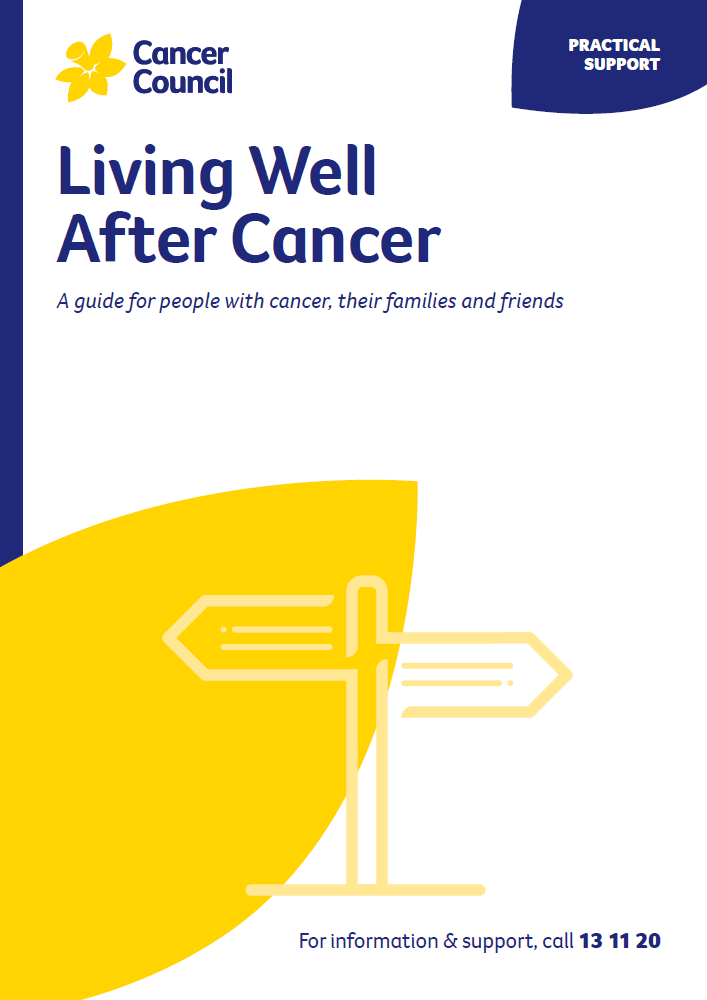- Home
- About Cancer
- Living well
- Living well after cancer
- Managing side effects
- Changed body image
Changed body image
If you are experiencing changes in your body after cancer treatment, there are ways to cope with emotional challenges. Here are some tips to help you accept your new self.
Learn more about:
- Physical changes after cancer treatment
- Adjusting to changes in appearance
- Webinar: Life Changes After Cancer
Physical changes after cancer treatment
Treatment for cancer can change how your body looks and works. How you feel about yourself (your self-esteem) may be affected by:
- removal of a body part and use of a prosthesis
- visible scars and skin tightness
- hair loss or hair growing back differently
- trouble speaking
- problems with eating or drinking
- breathing changes or shortness of breath
- weight loss or gain
- bowel or bladder changes
- changes to your sex life and intimacy
- early menopause or infertility
- a sense of feeling prematurely old.
| Adjusting to body changes | You may be self-conscious about any changes. It will take time to get used to seeing and feeling the differences in your body. Many cancer survivors say they feel angry and upset by the changes caused by the cancer and its treatment. |
| How your friends and family react | You may worry about how your family and friends will react, and whether your partner or a potential partner will find you physically attractive. It may help to let others know how you are feeling. Family and friends probably want to provide support and reassurance that they love and care for you. Hearing what they have to say may boost your confidence. |
| Get support | If you don’t feel comfortable talking to friends or family, consider speaking to your health care team, a psychologist or a counsellor. It may help to talk to someone who has had a similar experience. Call Cancer Council 13 11 20 for information on peer support programs. |
Adjusting to changes in appearance
- Be gentle with yourself and acknowledge your feelings.
- Give yourself time to get used to any physical changes. Some changes may improve with time.
- Talk openly about what has changed. Some people might be avoiding you because they don’t know what to say.
- Do activities that you enjoy or make you feel good about yourself, such as walking, listening to music, working or studying, having a massage, relaxing outside or volunteering.
- Buy some new clothes or accessories that make you feel comfortable and more confident about the way you currently look.
- Book into a free Look Good Feel Better workshop. Call 1800 650 960.
For practical suggestions about dealing with physical changes, call Cancer Council 13 11 20.
→ READ MORE: Impact on sexuality and intimacy
Webinar: Life Changes After Cancer
This webinar explores coping with major life changes and finding support when you feel misunderstood.
Podcast for people affected by cancer
Listen now
More resources
Prof Michael Jefford, Medical Oncologist and Director, Australian Cancer Survivorship Centre, Peter MacCallum Cancer Centre, VIC (clinical review); Lucy Bailey, Nurse Counsellor, Cancer Council Queensland; Philip Bullas, Consumer; Dr Kate Gunn, Clinical Psychologist and Senior Research Fellow, Department of Rural Health, University of South Australia, SA; Rosemerry Hodgkin, 13 11 20 Consultant, Cancer Council WA; Prof David Joske, Clinical Haematologist, Sir Charles Gairdner Hospital and Clinical Professor of Medicine, The University of Western Australia, WA; Kim Kerin-Ayres, Clinical Nurse Consultant, Cancer Survivorship, Concord Hospital, NSW; Sally Littlewood, Physiotherapist, Seymour Health, VIC; Georgina Lohse, Social Worker, GV Health, VIC; Melanie Moore, Exercise Physiologist and Clinical Supervisor, University of Canberra Cancer Wellness Clinic, ACT; June Savva, Senior Clinician Dietitian, Nutrition and Dietetics, Monash Cancer Centre, Monash Health, VIC; Dr Elysia Thornton-Benko, Specialist General Practitioner and Research Fellow, University of New South Wales, NSW; Prof Janette Vardy, Medical Oncologist, Concord Cancer Centre and Professor of Cancer Medicine, The University of Sydney, NSW; Lyndell Wills, Consumer.
View the Cancer Council NSW editorial policy.
View all publications or call 13 11 20 for free printed copies.

